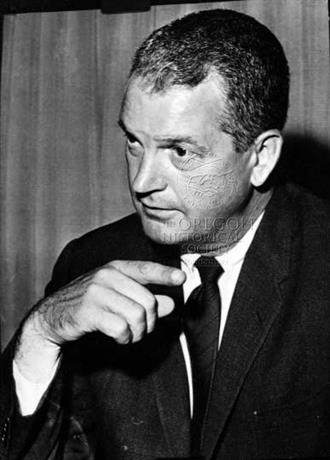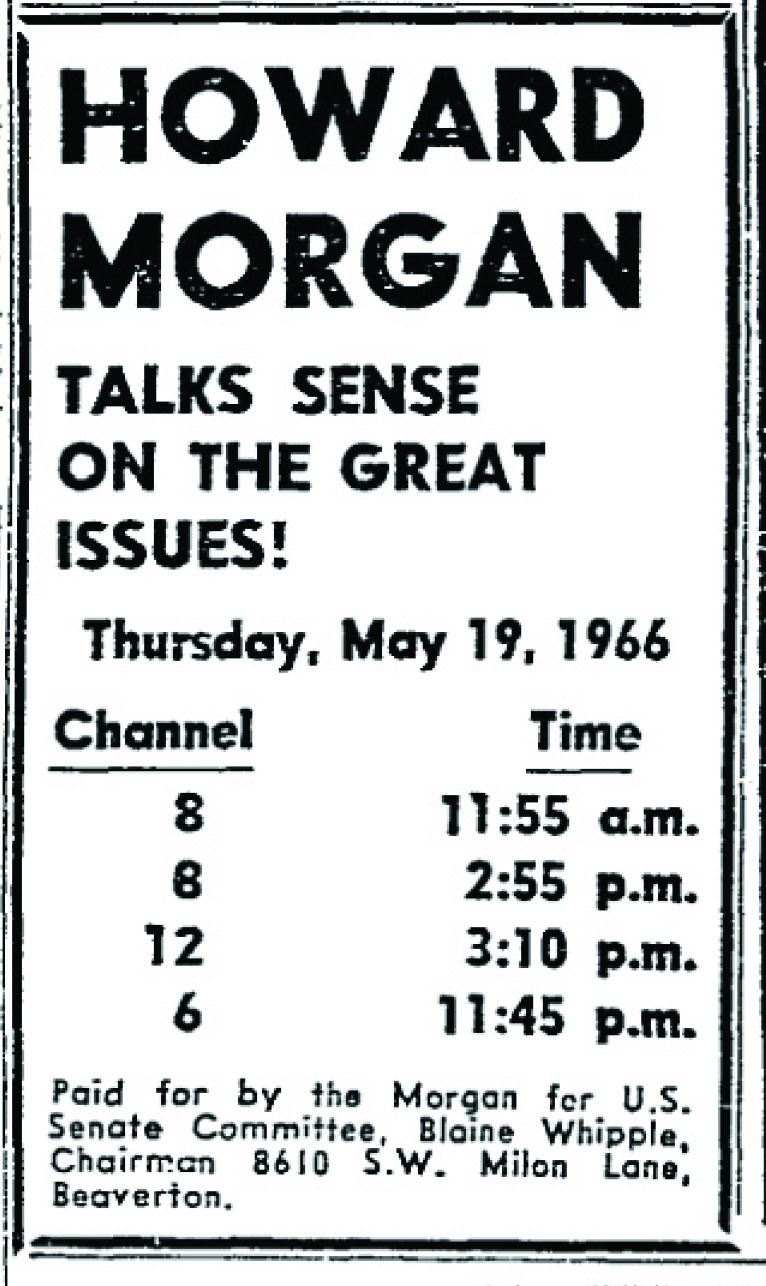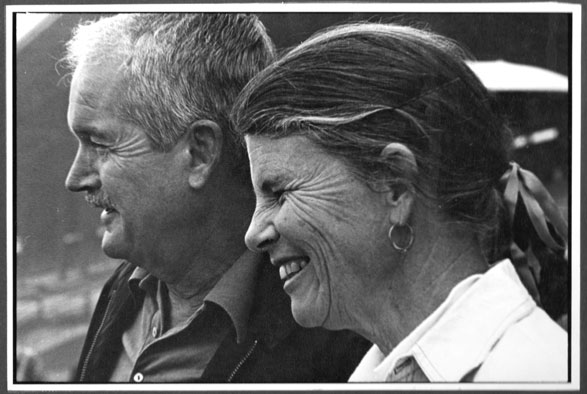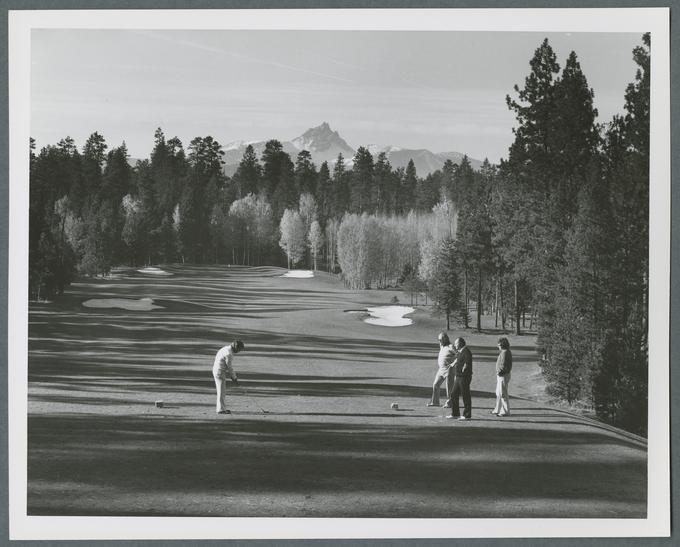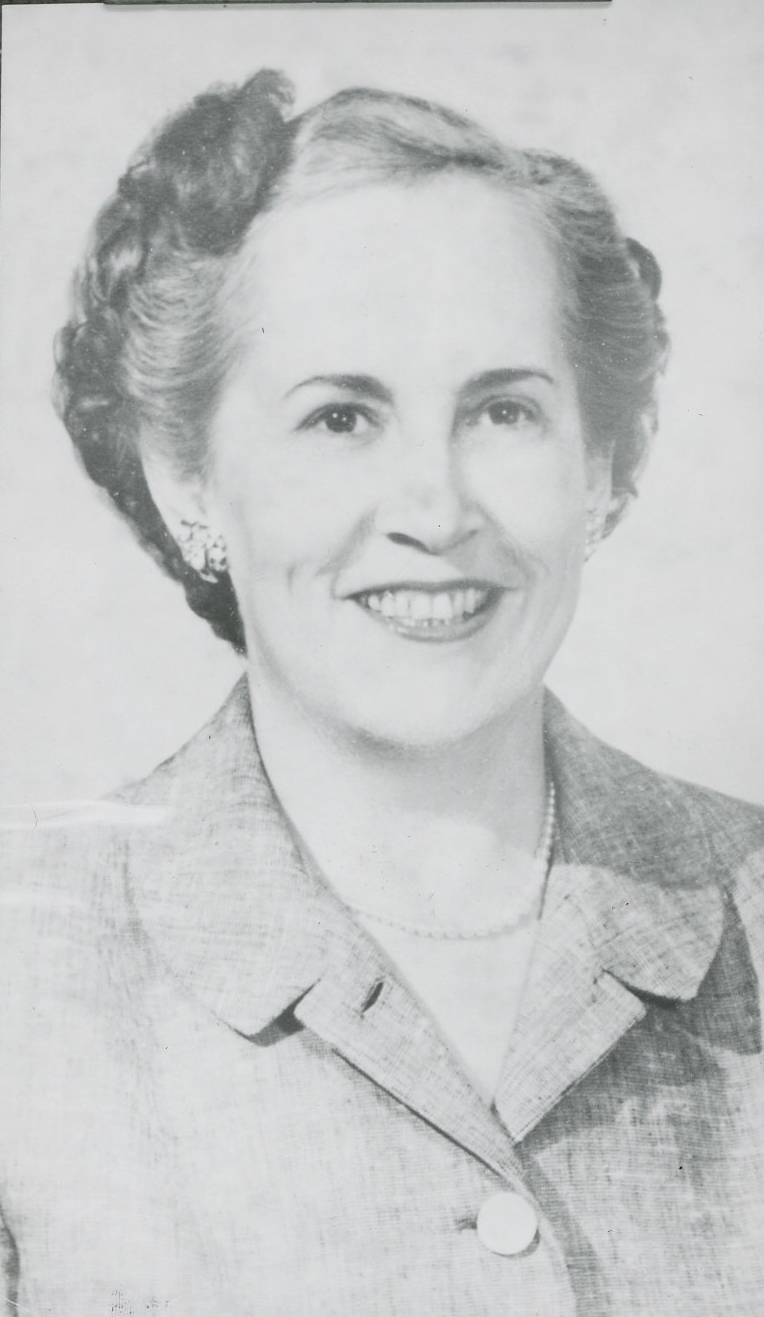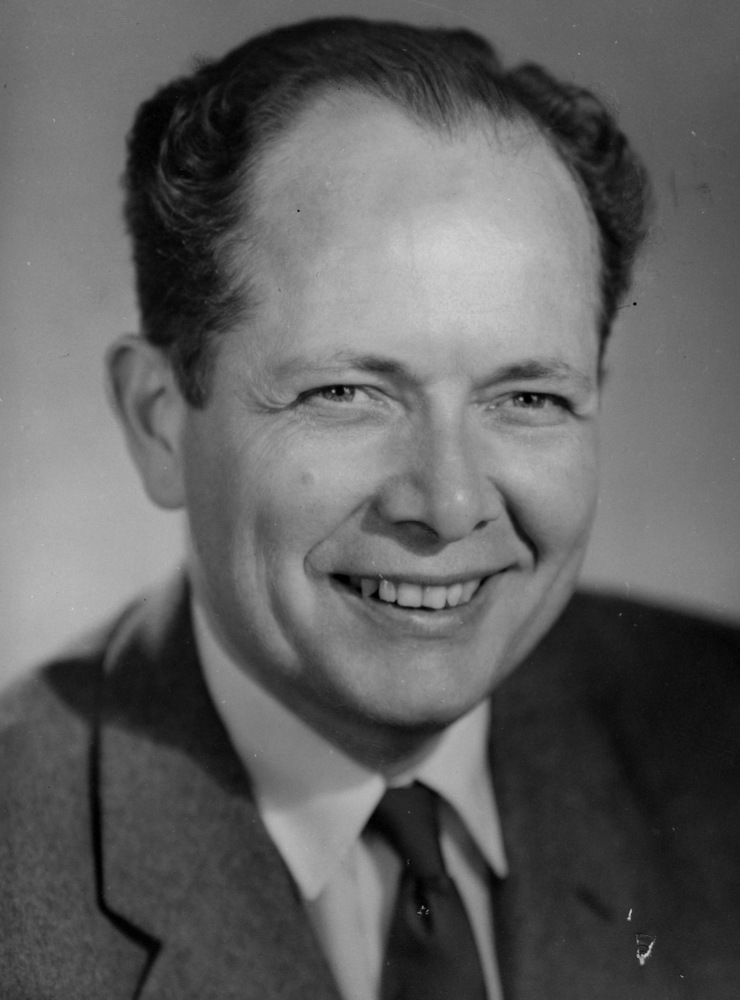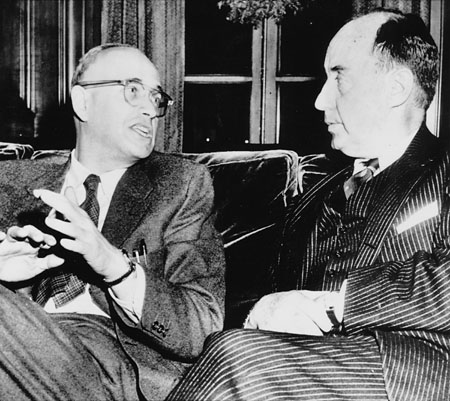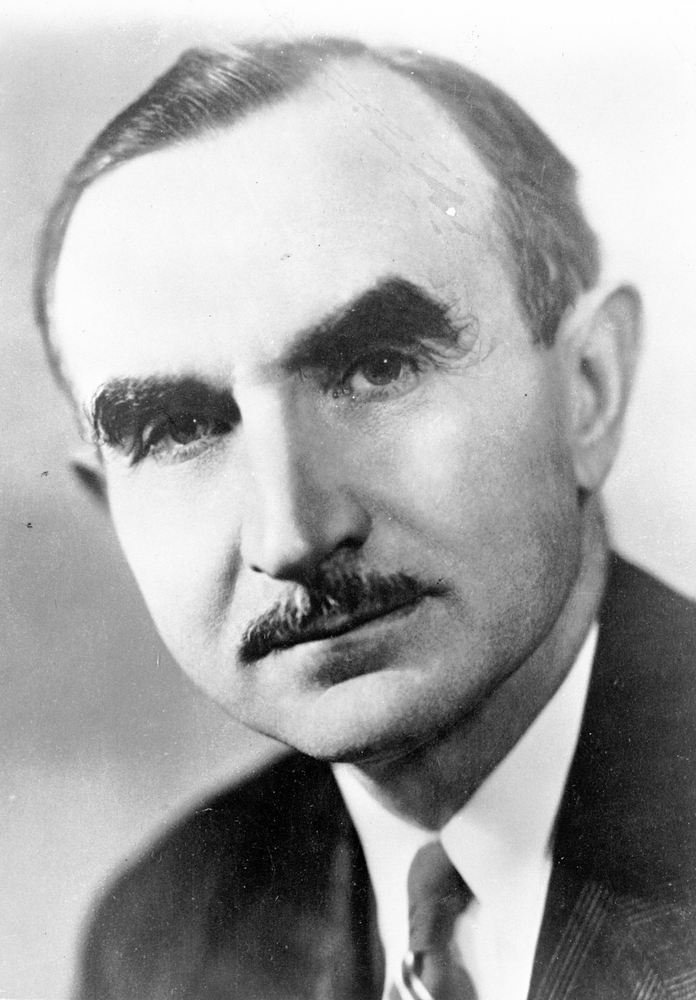Howard Morgan served one term as an Oregon State Representative before becoming chair of the Democratic Party of Oregon during the party’s transformative growth during the 1954 and 1956 elections. Morgan later served on the Public Utility Commissioner in Oregon and was a Federal Power commissioner, appointed by President John F. Kennedy.
Howard V. Morgan was born in Tillamook on January 22, 1914. His family moved to Portland, and as a boy he developed an interest in public affairs during his visits to the Albina neighborhood library in Portland. He graduated from Jefferson High School and attended Reed College, where he received a bachelor’s degree in economics in 1940. Morgan met Rosina Corbett, Reed class of 1941, who was from a wealthy and politically prominent family that included a U.S. senator and two state senators The two married in 1940 and had four children.
During World War II, Morgan served in the U.S. Navy Air Transport Service, helping to procure equipment that had been underfunded and damaged at the attack on Pearl Harbor in 1941. While based in Honolulu, he met fellow Oregonian Monroe Sweetland, who was serving in the Red Cross in the Pacific Theater, and together they envisioned plans for a more progressive and active Democratic Party in postwar Oregon.
After the war, the Morgans bought a house in Portland, and in 1948 Howard ran as a Democrat for state representative. He was elected to the solidly Republican House, where his proudest achievement was helping lead the passage of the Equal Employment Opportunities Act, one of the few such acts in the nation at the time. During Morgan’s term as state representative, the couple acquired a sheep ranch at Camp Adair, north of Corvallis.
Howard Morgan ran unsuccessfully for Oregon Labor Commissioner in 1950 to help fill the Democratic slate on the ballot. In 1952, he was elected to the first of two terms as chair of the Democratic Party of Oregon and served until 1956. Along with Democratic National Committeeman Monroe Sweetland, he helped recruit a winning slate of candidates, beginning with the upset victories of Edith Green to the U.S. House of Representatives and Richard Neuberger to the U.S. Senate in 1954. Two years later, Democratic State Senator Bob Holmes was elected governor, and the legislature had a Democratic majority.
Morgan also helped secure U.S. Senator Wayne Morse’s registration as a Democrat in 1955. Morse was elected to a third term the next year. A growing postwar working class, combined with GOP opposition to the expansion of popular public power, helped give the Democrats a base and a winning issue. In 1956, the Morgans sold their property in Camp Adair and purchased the Black Butte Cattle Ranch in central Oregon. They sold the ranch to developers in 1969.
After declining to run again for Democratic chair, Morgan worked on the staff of Governor Robert Holmes and the campaign of Democratic presidential nominee Adlai Stevenson. Holmes appointed Morgan to Oregon’s Public Utility Commission, where he served for two years (1957–1959) before stepping down after Holmes lost the governor’s seat to Mark Hatfield in 1958.
Although Morgan had been active in the Democratic Party’s Draft Stevenson campaign, Representative Green persuaded newly elected President Kennedy to appoint Morgan to the five-member Federal Power Commission. Morgan resigned in early 1963, complaining that the majority of the board favored private power at the expense of public utilities. In a blistering letter to the president, he complained that utility regulation “can easily become a fraud upon the public and a protective shield behind which monopoly may operate to the public detriment.”
After those experiences, Morgan operated a gravel and construction business in Portland while he continued to run Black Butte Ranch. An early opponent of the Vietnam War, he entered politics again, winning 35 percent of the vote against hawkish Democratic incumbent Bob Duncan in Oregon’s May 1966 U.S. Senate primary. Two years later, he co-chaired Senator Eugene McCarthy’s campaign against Robert Kennedy in the Oregon Democratic presidential primary.
Howard and Rosina Morgan took early retirement in the 1970s, sailing on their boat and first living in Spain and then on a houseboat on Sauvie Island. The couple settled on a ranch near McMinnville. Howard Morgan died in McMinnville on April 14, 2012.
-
![]()
Howard Morgan, 1963.
Oregon Historical Society Research Library, 013004
-
![]()
Howard Morgan for Senate, May 19, 1966.
Courtesy Portland Oregonian
-
![]()
Howard Morgan and Rosina Corbett Morgan.
Courtesy Reed College
Related Entries
-
![Black Butte Ranch]()
Black Butte Ranch
Black Butte Ranch is an 1,800-acre private resort community surrounded …
-
![Edith Starrett Green (1910-1987)]()
Edith Starrett Green (1910-1987)
Democrat Edith Starrett Green represented Oregon’s 3rd Congressional Di…
-
![Monroe Sweetland (1910-2006)]()
Monroe Sweetland (1910-2006)
Monroe Sweetland's life embraced the cultural revolution of the 1920s, …
-
![Richard Neuberger (1912-1960)]()
Richard Neuberger (1912-1960)
When he was elected to the United States Senate in 1954, Richard Neuber…
-
![Wayne Morse (1900-1974)]()
Wayne Morse (1900-1974)
Wayne Morse and the Vietnam War: the name and the conflict will be fore…
Related Historical Records
Map This on the Oregon History WayFinder
The Oregon History Wayfinder is an interactive map that identifies significant places, people, and events in Oregon history.
Further Reading
"Howard Vincent Morgan '40." Obituary. Reed Magazine, September 2012.



